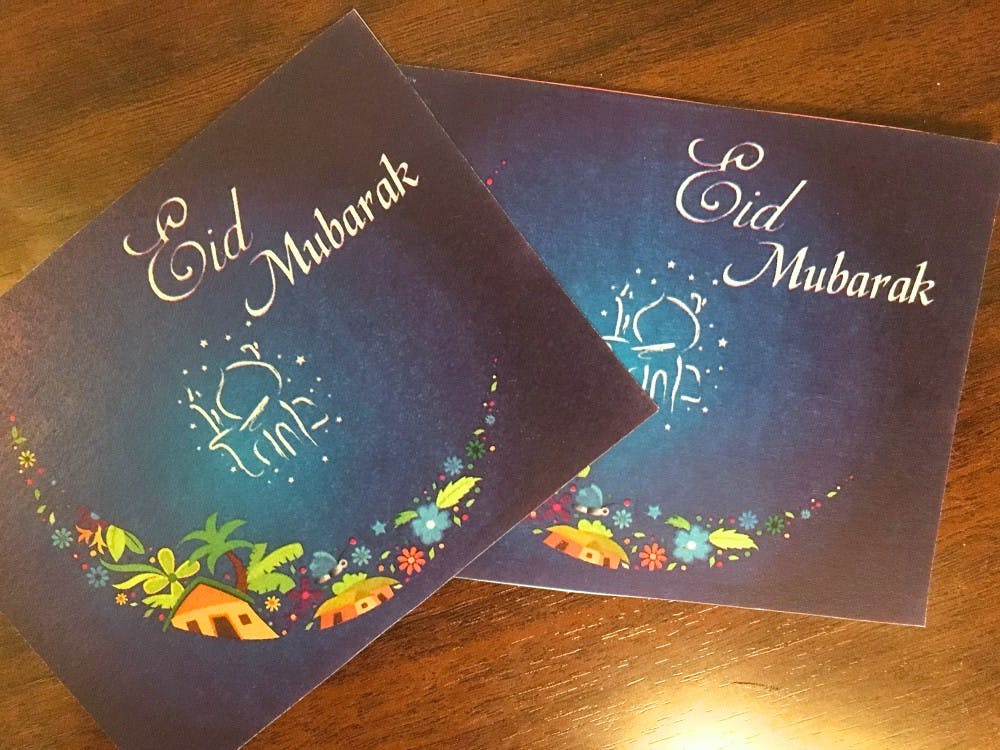Listen as Assistant Professor of Arabic, Shereen Elgamal, talks of her faith in Islam. Multimedia by Sophia Asmuth.
Elon University's growing effort to increase awareness and expand its diversity on campus is slow to progress. A snapshot of Elon's Registrar Report for fall 2015 shows 65.5 percent of the student body are Christian and 7.6 percent are Jewish — the next-largest religious group on campus. There are only seven Muslim students at Elon.
“These seven [Muslim students] represent a larger part of the community around us that we may be integrated within,” said Shereen Elgamal, assistant professor of Arabic. “This is an academic institution, so students are going to branch out from here ... Elon is a cross-section of society to prepare us for what is to come.”
Around 1.6 billion Muslims around the world celebrated Eid al-Adha on the evening of Sept. 23. One week later, roughly 150 Elon University students and community members celebrated the holiday in the Truitt Center for Religious and Spiritual Life Oct. 1.
Elon students discuss the significance of Eid al-Adha, multimedia by Sophia Asmuth.
In short, the celebration recognizes Abraham’s total willing sacrifice of his son to God. Senior and practicing Muslim, Shahad Haswa, explained the holiday in reference to Christmas.
“[Christians] have Christmas and get presents, we have Eid al-Adha and get money,” Haswa said. “You go visit family … and then you see them again because they want to come to your home after — totally insane.”
With such a small number of Muslim students at Elon, the holiday was more of an educational experience for many and less geared toward celebrating the holiday itself.
“Back home, we celebrate for fun, but here I celebrate more for education and making people aware,” Haswa said.
Just hours before Elon celebrated faith through Eid al-Adha, a gunman shot 19 people, killing 10, at Umpqua Community College in Roseburg, Orego. Reportedly, the attacker asked one simple question of his victims before he pulled the trigger: “What is your religion?”
In the instances of killing based on religion, Elgamel encourages people to constantly seek out the truth based on the facts.
“There are differences between what the religion says and what people choose to do,” Elgamel said. “When someone says, ‘I do this in the name of [a certain religion],’ he’s a criminal. Why would we take his word for it?”

According to a Pew Research Center Report titled “After Boston, Little Change in Views of Islam and Violence,” many U.S. residents do take “his” word for it. In May 2013, 42 percent said the Islamic Religion is more likely than others to encourage violence among its believers — an increase from 38 percent in August 2009.
To dispel “Islamophobia,” speaker and activist Faisal Khan, spoke to the Elon students at the celebration. He used Eid al-Adha to educate about Allah and his vision for humanity.
“His message is not only addressed to Islam or Muslims. It is to the entire humanity,” Khan said.
Khan described this as a message to remove ignorance, to establish the belief in one god and to have faith in god. He recommended the removal of ignorance through interfaith engagement and civic engagement and encouraged students to engage in government affairs, write to media outlets and volunteer for nonprofit organizations.
“The only way we’ll overcome our differences is to get to know each other and serve our communities together,” Khan said.


